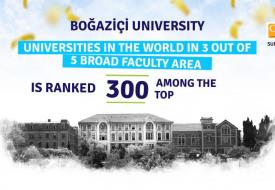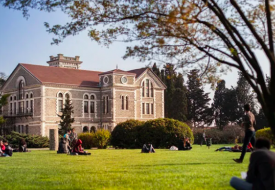Dr. Bora Akgün, researcher at CERN preparing to open a new lab in Boğaziçi University
Dr. Akgün’s lab will be focusing on advanced electronic devices used in the Large Hadron Collider (LHC) at CERN. The LHC is the world's largest and highest-energy particle collider and the largest machine in the world. It has been built to further our understanding of the universe. Bora Akgün, a researcher at CERN and a Boğazici University graduate, will establish the laboratory with funds he received from the Scientific and Technological Research Council of Turkey (TÜBİTAK).
Dr. Bora Akgün said that due to the coronavirus pandemic, the project was delayed but he hoped the laboratory would open as soon as possible. Employed at CERN for the last 12 years, Akgün received a TÜBİTAK international fellowship last year. "This program encourages Turkish scientists engaged in remarkable researches in the international area to pursue their studies in Turkey. With the support I received from TÜBİTAK, and cooperation of CERN, we will establish a new laboratory at Boğaziçi University," he said, adding that interdisciplinary research with engineering fields such as electricity and electronics will be conducted.
He also added that ‘’Large Hadron Collider at CERN collides the protons on the speed of light and we, to be able to trace them, use highly developed electronic detectors. In the lab to be established in Boğaziçi, we will work to improve those electronic devices’’.
About CERN:
The European Organization for Nuclear Research known as CERN is a European research organization that operates the largest particle physics laboratory in the world. Established in 1954, the organization has 23 member states. Turkey became an associate member in May 2015. CERN's main function is to provide the particle accelerators and other infrastructure needed for high-energy physics research – as a result, numerous experiments have been constructed at CERN through international collaborations.













